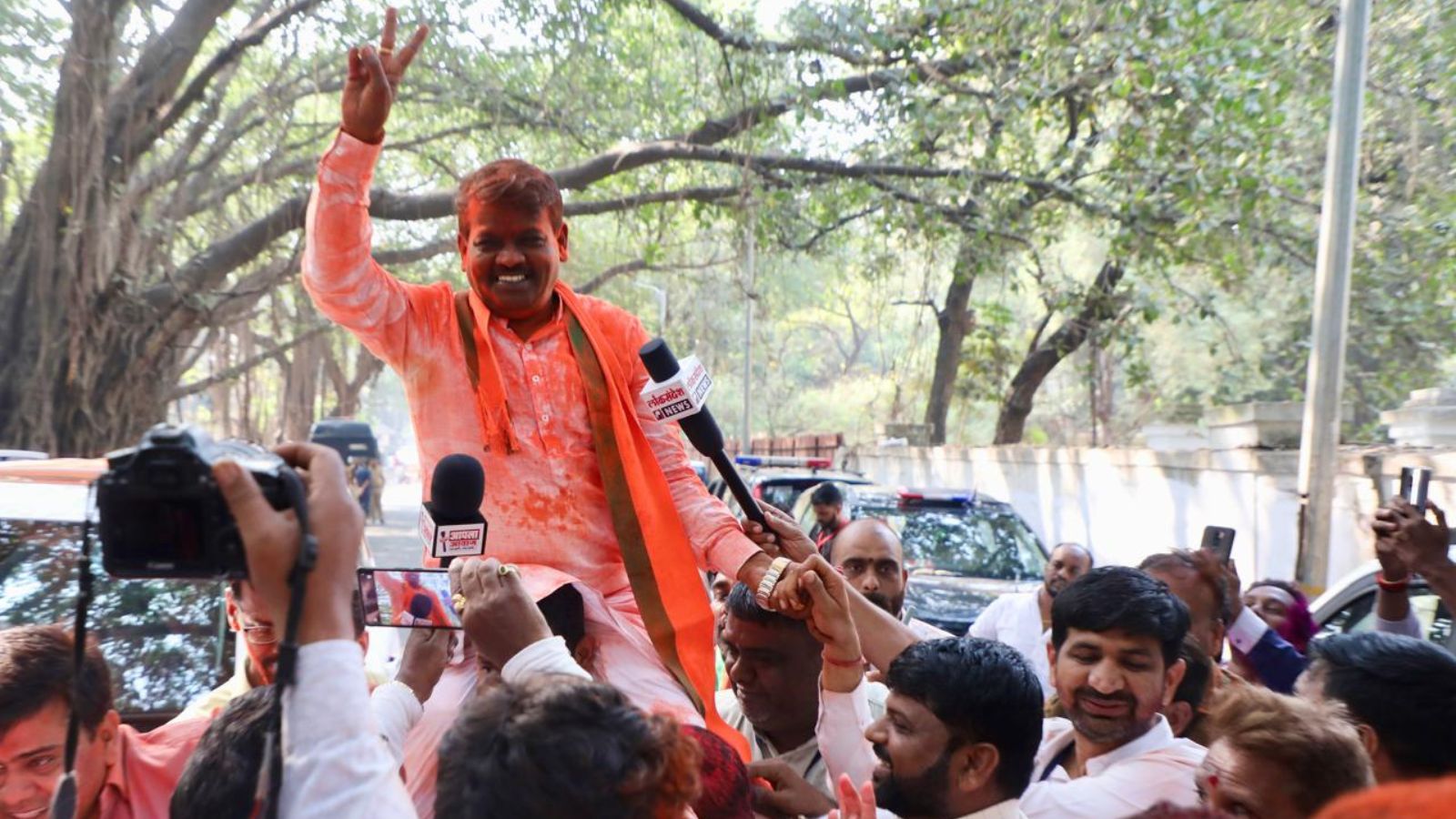 |
|
The Maharashtra Assembly elections witnessed a significant victory for Sunil Kamble of the Mahayuti, who secured re-election from the Pune Cantonment constituency. His win, marked by a comfortable margin of over 10,000 votes against Congress candidate Ramesh Bagwe, is being attributed in large part to the impact of the Laadki Bahin scheme, a social welfare initiative implemented by the ruling party. Kamble himself openly credited the scheme's success in garnering support among female voters, underscoring its influence on the election outcome. The close contest, initially a neck-and-neck race in the early rounds of counting, saw a gradual shift in favor of Kamble, ultimately resulting in a decisive victory.
The election also highlighted internal conflicts within the Congress party. The defeat of Ramesh Bagwe, a party loyalist and former minister, can be attributed to several factors, including internal strife within the Congress ranks and the undeniable impact of the Laadki Bahin scheme. While Congress party workers reportedly rallied behind Bagwe, their efforts were seemingly overshadowed by the scheme's popularity and the perceived effectiveness of the Mahayuti's campaign. The presence of Nilesh Alhat from the Vanchit Bahujan Aghadi also played a role, diverting votes that might have otherwise gone to Bagwe, further hindering his chances of victory. Alhat's significant vote share, exceeding 5000 votes, indicates a considerable segment of the electorate that didn't support either of the main contenders, suggesting potential areas for future political strategizing for all parties involved.
The dynamics of the Pune Cantonment election offer valuable insights into the influence of social welfare schemes on electoral outcomes. The Laadki Bahin scheme, designed to empower women, seems to have significantly affected the voting patterns in this constituency. This suggests a growing trend where such initiatives can impact elections, prompting a deeper analysis of the correlation between social welfare programs and their influence on voter behavior. The win for Kamble also underscores the effectiveness of his campaign strategy, including managing internal party dynamics and neutralizing opposition efforts. His focus on local development projects and infrastructure improvements resonates with his constituency, contributing to his second consecutive term in office. The election also highlights the significant impact of smaller parties on the electoral landscape, underscoring the need for major parties to engage with a broader range of voter concerns.
The 2019 election serves as a significant backdrop to the recent contest. Bagwe's loss in that election, coupled with internal dissent within the Congress party concerning his renomination, laid the groundwork for his current defeat. His past electoral performance, along with the internal party dynamics, created an atmosphere of vulnerability which, combined with the success of the Laadki Bahin scheme, ultimately led to his loss. This underlines the importance of cohesive party strategies and the impact of candidate selection on overall electoral success. This election not only showcases the success of a social welfare program in shaping voting patterns but also highlights the complexity of factors that contribute to victory or defeat in a political campaign. The interplay between party unity, effective campaigning, social welfare initiatives, and the electorate's response provides a detailed case study for understanding contemporary electoral politics in India.
Source: ‘Laadki Bahin impact’: Mahayuti’s Sunil Kamble re-elected from Pune Cantonment seat
